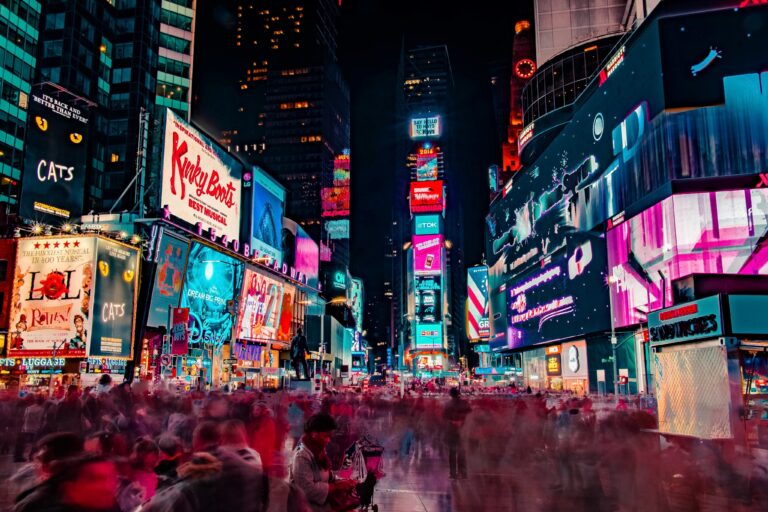By Matthew Pierce, founder and CEO of Versus Systems
Choice, interactivity, achievement, and rewarded-action are the keys to making any activity more engaging. You’re more likely to enjoy something that you’ve chosen versus something that you’re forced to watch or do. You’re more likely to remember the activity and remember it fondly if you earned something, achieved something, or you can connect your actions and efforts to you or someone you love benefitting from it. Humans appreciate choice – and respond favorably to selecting between a reasonable number of options – especially when compared to compulsory activities. Our brains have physical structures that react to and reinforce rewards as a mechanics for behavior change. We love challenges. We love choices. We love interacting. We love winning.
We are literally built to choose, to try, and to earn rewards.
Why then are we still stopping our favorite forms of entertainment with unskippable ads that we didn’t choose, that we can’t interact with, that do not challenge us to accomplish anything, and that don’t give us anything in return for our time and energy?
At one point, the answer was both a commerce question and a question of technology development. The entertainment industry – including radio, television, live events, and magazines – all found that there was an enormous revenue opportunity in advertising within or alongside content. Advertising and entertainment – advertising and media – have been intertwined for hundreds of years with newspapers dating back to the 15th century, and only growing with the first commercial radio broadcast in 1920 and the first broadcast of a live baseball game only months later in 1921. These advertisements were limited by technology. They had to be one-to-many with no personalization, no interactivity, no feedback, no challenges, no choice, no rewards. They worked with what they had and so we ended up with commercials, and product placement, and print ads.
Unfortunately, in a lot of cases, we’re still living with that legacy. In some places, that makes sense. Graphics, art, print, product placement, and even the power of influencers, are always going to be huge parts of the advertising landscape. But today there is so much more.
Conscientious brands can use new technologies to target audiences while respecting privacy. They can create “conversations” with their potential consumers directly. They can use context (location, time, content type, device type) to alter their messaging. They can provide customers with choices of products, features, and different types of discounts and rewards. They can reward their consumers for their actions and behaviors. They can create games and tie those rewards directly to a player’s actions, or create collective achievements so that groups, teams, fanbases, or cities can be linked in victory when their favorite team wins a big game. And we can measure results in ways that we never could in years past. There are dozens of companies that are making advertising better – from in-game ads that Unity uses to give extra lives in your favorite mobile game, to the polling and sentiment questions that make interactive ads from the Trade Desk more effective. Interactivity is growing. Choice is growing. Challenges are coming. Rewards are coming.
The advertising world is changing to meet the needs of consumers. We finally have the technology that can use ads not as compulsory breaks in the action, but as a central part of the event itself. We can make games more fun. We can make our favorite shows and live events more personal, more contextual, and more rewarding. We can make all media more engaging. Humans are literally built to favor choice and earned-rewards but our historical advertising methods weren’t able to give us what we’re built for. Thankfully, a new day is coming for brands and for audiences. Choice, interactivity, achievement, and rewards – it’s what we were built for all along.
About the author

Matthew Pierce is the founder and CEO of Versus Systems (Nasdaq: VS), creating solutions to make TV, streams, games, and live events more engaging with in-game achievements, rewards, and second screen content. Versus partners include dozens of major live events as well as over 150 professional teams across the NFL, NBA, NHL, MLB, MLS, FIFA, NCAA, and others.
Prior to Versus, Pierce spent his career in media and technology. He helped to found multiple companies including Rosum Corporation (acquired by TruePosition), O-Labs, and RobotDinosaurGames. He’s authored multiple patents in the fields of interactive media, gaming, and location-based services. Pierce is an investor and advisor to early-stage technology companies and is a graduate of Stanford University where he was an All-American and NCAA Champion swimmer. He earned his MBA at UCLA Anderson where he is now a Lecturer.
Related Articles

Transaction-Level Data Is Raising the Bar for Attribution and Accountability
For retailers building or scaling retail media and broader commerce marketing programs, this shift reshapes how audiences should be built and forces a more disciplined approach to transparency and cross-channel accountability.

How Rising Consent Awareness Is Reshaping Customer Experience, Data Quality, and Campaign Performance
It also revealed that another 35% expect to deploy personalized AI recommendations in the next year, as AI moves from pilots into the heart of omnichannel journeys, search and merchandising.

5 Strategies for Scaling BOPIS Operations During Holiday Peak Season
Companies across various sectors are leveraging automation to enhance in-store experiences and improve customer satisfaction, including within BOPIS systems. It is shown to bolster productivity and decision-making, too.

How to Evaluate Retail Automation Solutions for Your Business
To achieve the benefits of retail automation, you must find the right partner. Consider the following tips to make an informed decision.


 for the latest news and job opportunities in retail tech
for the latest news and job opportunities in retail tech 